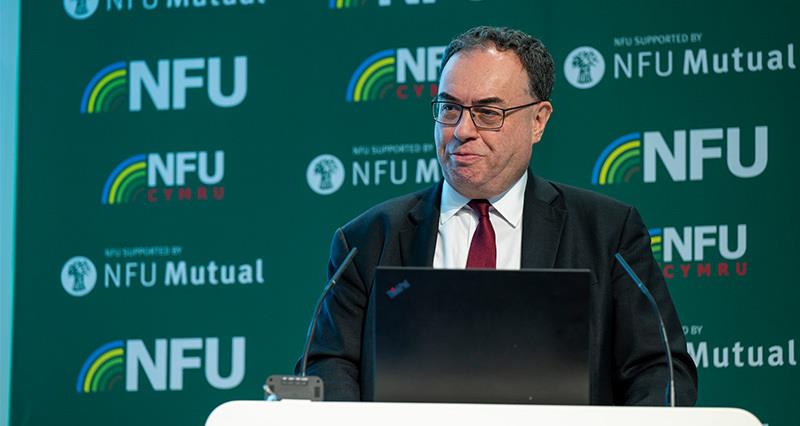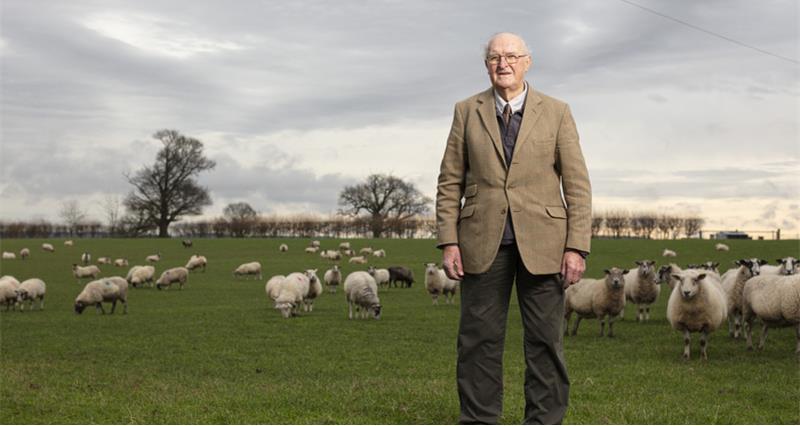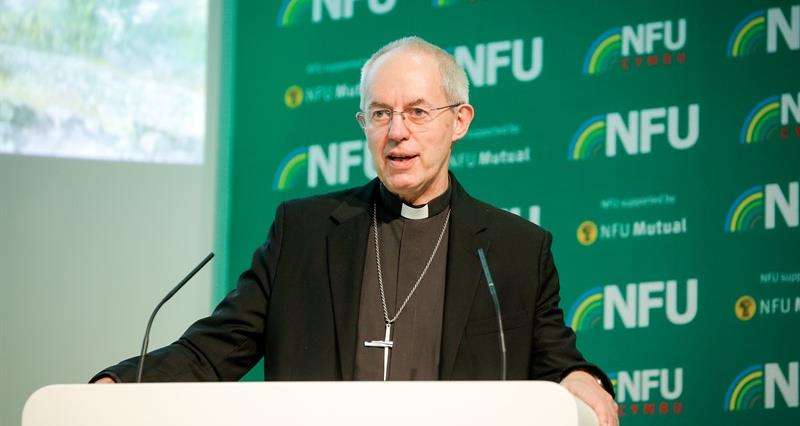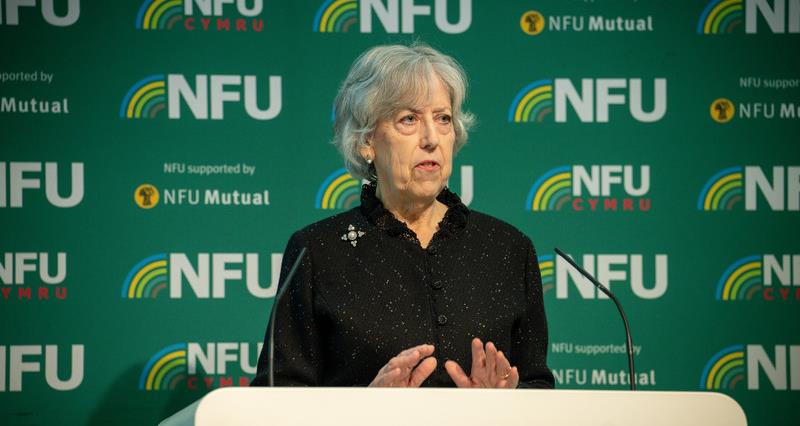Speaking at the NFU’s sixth annual Henry Plumb Memorial lecture, held in honour of the late NFU President, the Governor said while recent news on the fall in inflation was “welcome”, it is still “far too early to be thinking about rate cuts”.
Last week the Office for National Statistics confirmed that inflation had fallen to 4.6% during October. The figure remains “too high” Andrew said, adding that it would need to come down to the 2% target.
“Monetary policy is currently restrictive in the sense that, if we maintain this stance for long enough, we will squeeze inflation out of the system.”
The Governor added that, according to the MPC’s (Monetary Policy Committee) latest projections “monetary policy is likely to need to be restrictive for quite some time yet”.
Food prices remain high
Andrew Bailey said that despite the fall in food price inflation, food prices remain high with consumer food prices close to 30% higher than they were at the start of the pandemic. “The high cost of food continues be a major challenge for many people across the country, especially those on lower incomes,” he said.
“The rise in consumer food prices has been a global phenomenon, caused not least by Russia’s illegal war on Ukraine.
“But UK food price inflation rose higher and faster, and has taken longer to come down, than past relationships with agricultural commodity prices would have suggested.”
“I will be resuming my visits around farms and food producers – because we still have a lot to learn from you.”
Governor of the Bank of England Andrew Bailey
Energy costs have had an indirect effect on consumer prices, the Governor explained, and these effects are “significant, especially for food”.
Telling your story
The Governor spoke on his experience meeting farmers, describing it as “one of the great joys and privileges of my job to meet a lot of businesses and go to a lot of farms”.
“It was clear from these conversations that many people in the industry expected consumer food price inflation to come back down when agricultural commodity prices started to fall again towards the end of 2022.
“Supermarkets tended to tell us that food price inflation had now peaked. The truth of the matter is – farmers were more sceptical.”
Farmers highlighted how they were facing higher costs of production and that “these costs would have to be covered somehow to sustain production”.
“I have reached the judgement that farmers were right,” Andrew Bailey said.
Later adding that a visit to a dairy farm in Devon was a “lightbulb moment” for him in terms of understanding the pressures farmers are facing, the Governor said that there was “no substitute for [farmers] finding opportunities to tell your stories and give people a first-hand account”.
What are the Henry Plumb Lectures?
Lord Henry Plumb, a farmer from Warwickshire, had a long career with the NFU, becoming Vice President in 1964 at the age of 38, and serving as President between 1970 – 1978.
The lectures bring together key players from the agriculture sector, to speak on and debate the latest thoughts on farming, and where the industry is headed in the future.
“I will be resuming my visits around farms and food producers – because we still have a lot to learn from you,” he concluded.
Challenges remain for agriculture
Thanking the Governor for his speech, NFU President Minette Batters said Andrew “joins a great list of prestigious speakers who have passed on their wisdom about topics touching food, farming and the environment”.
“It remains an incredibly challenging time for the agriculture sector, and the country as a whole, both economically and politically. As the Governor highlighted, inflation has been one of the biggest issues impacting the agriculture industry, with input costs increasing by 33% over the past four years.”
Ahead of this year’s Autumn Statement, the NFU has called on the Chancellor to review long-term energy contracts and improve transparency in the market.
Minette said it was “vital” that the government continues to look at opportunities to reduce the causes of food inflation.
To unlock a thriving food and farming industry, “we need to leave behind the ‘embrace’ and ‘abandonment’ cycle of food production,” Minette added.
“It is for all political parties now to decide whether they want to back British farmers and embrace our domestic food security with policies that value food production.”
118378,118379,118380,118381







